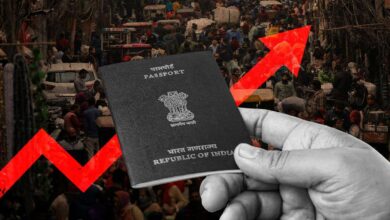WhatsApp won’t help India monitor messages to stop fake news

A WhatsApp spokesperson told the Press Trust of India:
Building traceability would undermine end-to-end encryption and the private nature of WhatsApp, creating the potential for serious misuse. WhatsApp will not weaken the privacy protections we provide.
That shouldn’t come as a surprise: end-to-end encryption – which prevents the contents of your messages from being read while they’re being transmitted between devices – is the cornerstone of most modern messaging services around the world. Weakening that protocol would cause users to lose their trust in WhatsApp’s ability to protect their privacy, and possibly consider switching to alternatives.
Is WhatsApp responsible for the effects of misinformation spread on its platform? It’s hard to say. For one thing, the service has more than 200 million users in India, and many of them are coming online for the first time with smartphones. They may not all be aware of the various ways in which information and media can be manipulated to sow dissent, incite violence, or simply mislead people about what’s going on around them.
It could also land innocent users in trouble: last April, a joint order issued by a District Magistrate and a Senior Superintendent of Police in the Indian state of Uttar Pradesh ruled that any rumor, or factually incorrect or misleading information on a social media group could result in a complaint against the group administrator being filed with police.
For its part, WhatsApp says it’s committed to educating people about misinformation. It introduced a couple of small features to limit the spread of forwards, and recently launched a newspaper ad campaign to inform readers about how they can identify misinformation.

The Indian government clearly wants WhatsApp to play a bigger role in the war on fake news: in addition to tracing such messages, it’s also asked the company to set up a grievance cell to address complaints about misinformation within a matter of hours.
It’s also expected to introduce new guidelines next month to require online platforms to respond more quickly than they presently do to stem the spread of misinformation and offensive content.
Should WhatsApp give in? As I’ve written before, I’m of the opinion that this is the Indian government’s attempt at shifting blame for the atrocities committed by its people. Between a lack of access to quality public education, low faith in police and justice systems, and the absence of a culture of questioning the veracity of broadcasted information, the country is a prime target for breeding paranoia and dissent. That’s not something WhatsApp can fix.
Source: The Next Web




